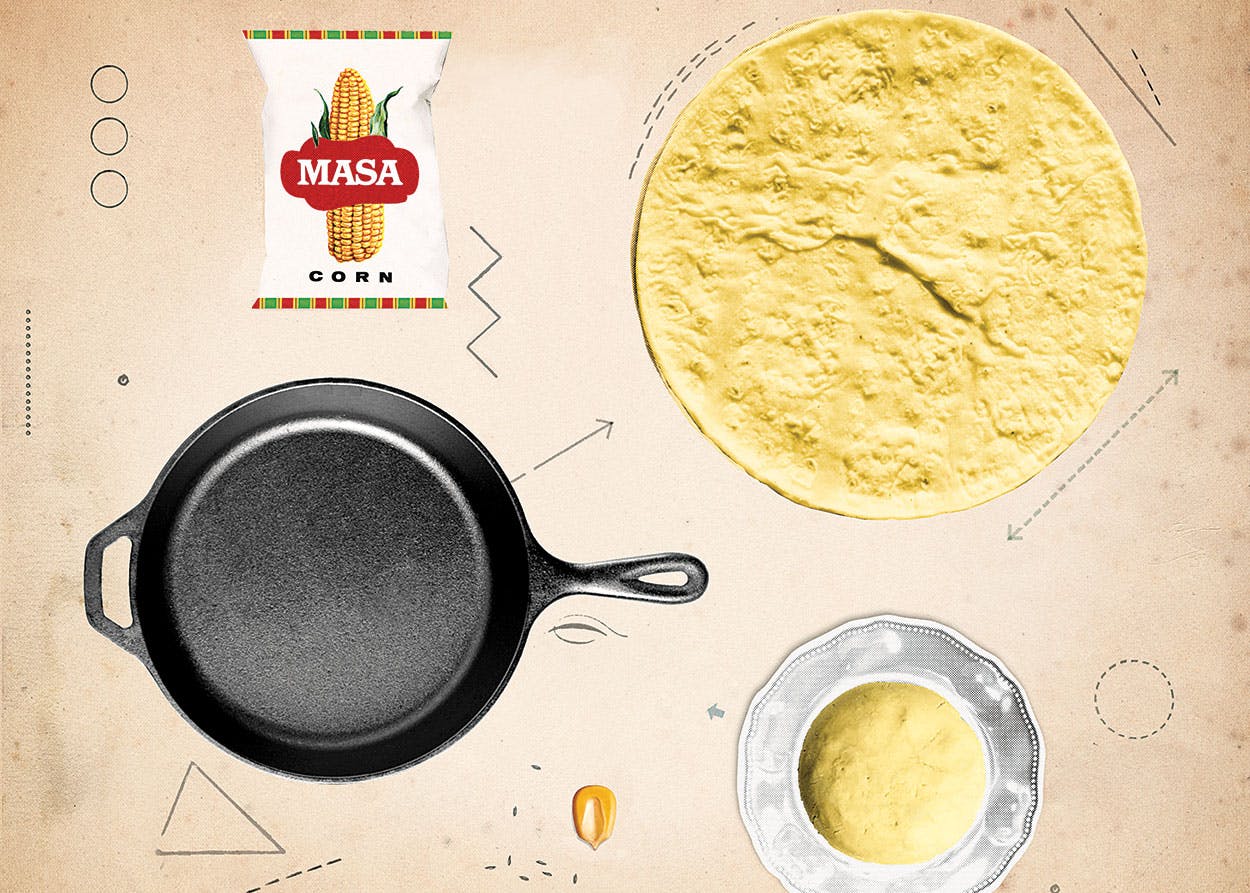My hands envelop the aromatic corn tortilla as I munch on a smoked salmon taco with asadero cheese, avocado, crema fresca, and microgreens. The scent clings to my fingers for hours afterward, bringing to mind a damp cornfield after a sun shower. But although the taco comes from Dallas’s Tacos Mariachi, the tortilla wasn’t made on-site. Instead, it hails from the nearby Araiza Tortilla Factory, a small family-owned operation that for more than thirty years has produced high-quality tortillas.
For Tacos Mariachi owner Jesús Carmona, making tortillas in-house doesn’t make sense. It comes down to consistency and labor. “You need to find the right person to make those tortillas,” he says. “It’s not easy to find that person. Also, a great freshly made tortilla must go from the flattop to the taco to the customer within seconds. If you need to reheat that tortilla, it’s never the same.”
I’ve seen it during my years on the taco beat: handmade tortillas can mean a pricier taco. So often it’s better to go with outsourced tortillas. Maybe they’re as satisfying as Araiza’s distinctive tortillas. Maybe they’re small, flavor-neutral discs that allow the fillings to flit across your taste buds and the salsa to scorch the back of your throat. Or perhaps they’re large-scale commodity tortillas that have an artificial aftertaste, a product of preservatives introduced to the mix. But that’s just corn. Flour is a whole other ball game.
Incorrectly considered inauthentic, flour tortillas are used for tacos on both sides of the border. Perhaps the one wrapping your breakfast taco is made with lard or beef tallow. But bless your heart if you attempt to serve industrial-grade flour tortillas—those rubbery, desiccated discs available at megamarts—in and around San Antonio, where handmade flour tortillas are standard.
But as Mexican cuisine gains wider traction, there’s greater interest in its foundation of traditional handiwork. True handmade corn tortillas require grinding nixtamalized corn—kernels cooked and bathed in an alkaline solution that breaks the hulls and extracts nutrients—into masa, which is then rolled out into tortillas. Ideally, the result of all this work is tortilla perfection, a vessel that’s delicate but strong enough not to fall apart. Yet there are plenty of botched handmade tortillas: they can be papery, bland, cakelike, or unevenly cooked. So making your own can be risky.
The risk has certainly paid off for the new Dai Due Taqueria at Austin’s downtown Fareground food hall, which opened in January. A spin-off of the highly regarded Dai Due restaurant in East Austin, the taqueria, led by owners Jesse Griffiths and Tamara Mayfield and chef Gabe Erales, successfully honors the intersection of Mexican and Texan foodways, beginning with the handmade tortilla. The kitchen starts with sifted post-oak ash from its grill and works in corn from Tamoa, a purveyor of heirloom corn from Mexican community farmers. For its flour tortillas, Dai Due uses Sonoran wheat flour, sourced from nearby small-batch miller Barton Springs Mill.
“I love the idea behind a taqueria that seems counter-service-casual on the surface,” Erales says, “but you get behind the counter and you see there is a ton of effort going into making tortillas.”
Taco options include wild boar al pastor sliced from a traditional trompo and brightened by a sliver of grapefruit; venison picadillo smoothed by sweet potato; and a beet twist on smoked longaniza sausage. Customers can also buy tortillas to take home, as well as fresh masa if they want to try to make their own.
Dai Due Taqueria would be a welcome addition to the Texas taco landscape even without its tortillas. But in most areas, housemade tortillas aren’t a requirement: a great taco depends on the chef’s vision and fillings. If tortillas are made on-site, they need to be done the right way.









